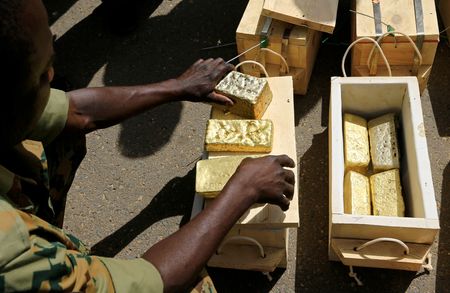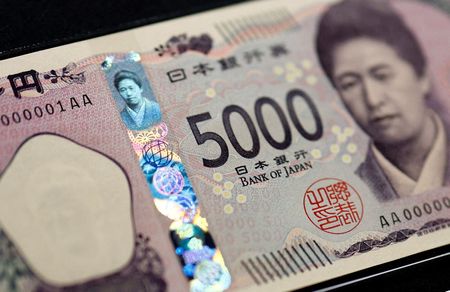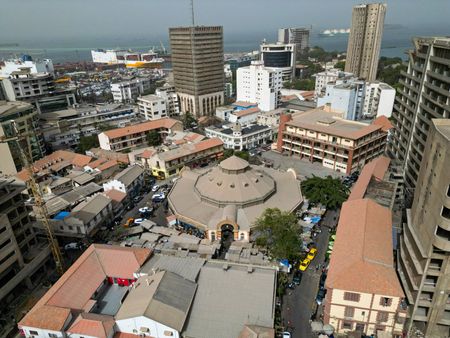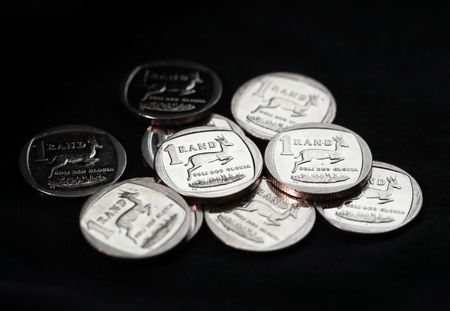By Nafisa Eltahir
(Reuters) -The Sudanese pound has shed nearly two-fifths of its value after a de facto embargo on flights from the army’s wartime capital Port Sudan into the United Arab Emirates disrupted the vital gold trade, traders and Sudanese officials said.
The army relies on the UAE for hard currency from gold exports but also accuses it of backing the rival Rapid Support Forces paramilitary in a two-and-a-half-year civil war that has killed tens of thousands and displaced millions.
The UAE, which denies backing the RSF but has increasingly fraught relations with the army-led government, stopped in early August all commercial flights from Port Sudan, the nation’s main conduit for international trade, according to the Sudanese Civil Aviation Authority and flight tracking data.
It also halted shipping traffic via UAE ports to and from Sudan, according to shipping notices and five industry sources.
A resulting decline of legal gold exports from areas under the Sudanese army’s control drove the pound’s value down from 2,200 to 3,600 per dollar, three gold and currency traders said.
It was worth 600 before the war began in April 2023.
Authorities in the UAE, which is the world’s second largest gold trading hub, did not respond to requests for comment.
But in August the UAE did accuse Sudan’s army of an increase in false accusations and propaganda, without giving specifics.
Sudan’s finance ministry did not respond to a request for comment.
The pound’s plunge reveals the depth of Sudan’s economic reliance on the UAE despite a breakdown of diplomatic relations.
According to Sudanese central bank data, the UAE imported almost 90% of Sudan’s legal gold exports, about 8.8 tonnes, in the first half of 2025. These exports brought in almost $840 million, Sudan’s largest export by far.
The Sudanese government has used these exports to finance imports of strategic commodities like fuel and wheat, prices for which have shot up since August in army-controlled territory, according to residents.
Traders say the UAE is also the destination for Sudan’s smuggled gold, which accounts for four times more than official production, according to Mubarak Ardol, the former head of the Sudan Minerals Corporation.
Both the army and RSF are involved in smuggling, according to analysts and trade sources.
RELIANCE ON UAE
Sudan’s reliance on the UAE became entrenched after U.S. sanctions from the late 1990s made dealing with most international banks impossible.
Dubai Islamic Bank is the largest shareholder in Sudan’s main bank Bank of Khartoum and most government transactions go through the Abu Dhabi branch of Sudan’s El Nilein Bank.
The UAE’s gold refining capacity is also well beyond that of other regional countries. Ardol said UAE gold importers facilitate trade by offering advanced payments.
Suliman Baldo, head of the Sudan Transparency and Policy Tracker, said Port Sudan authorities and traders had been exploring pathways for alternate markets in Qatar, Oman, Egypt and Saudi Arabia but none had worked out so far.
However, the UAE embargo has pushed more smuggled gold to Egypt, most of which ultimately ends up in the UAE, according to Baldo and four traders.
“Egypt is the biggest gainer. Gold gets re-exported in large amounts to the UAE, and all the benefit of the difference goes to Egypt,” Baldo said.
Marc Ummel, who researches the gold trade for NGO Swissaid, said that some of Sudan’s legal gold exports have also since August been diverted to Qatar and Oman, but those too ultimately land in the UAE.
(Reporting by Khalid Abdelaziz and Nafisa Eltahir; additional reporting by Mohamed Ezz, Jonathan Saul, Jeslyn Lerh, and Florence Tan; Editing by Alex Dziadosz and Andrew Cawthorne)









